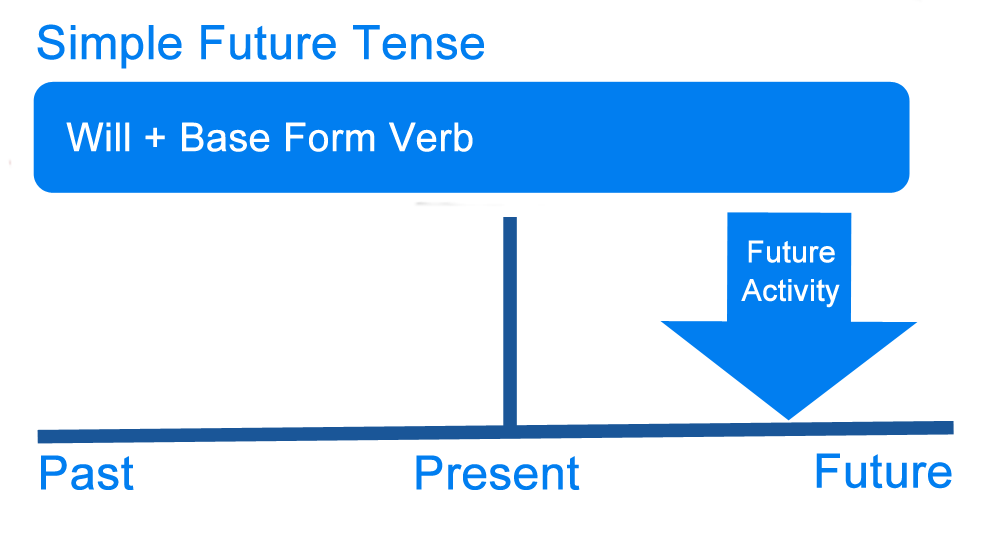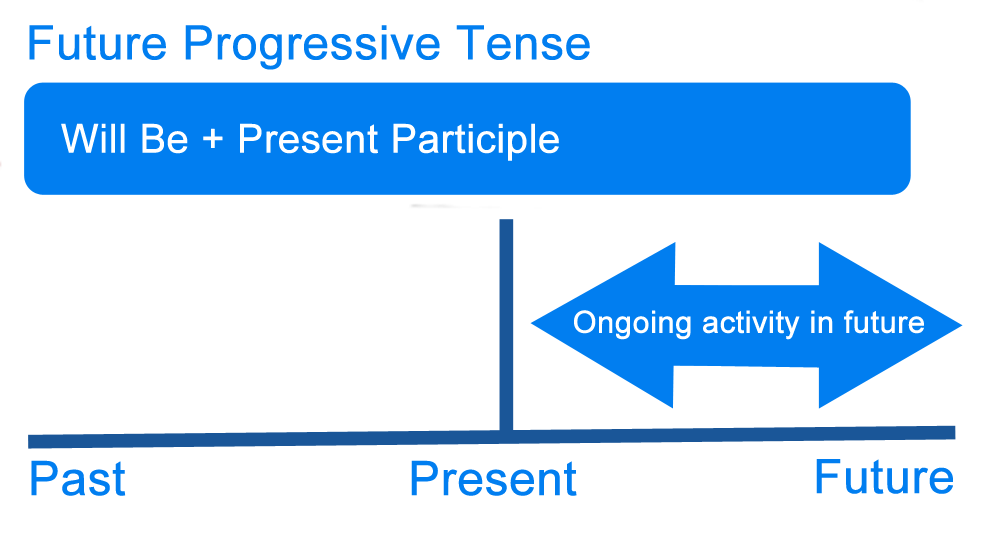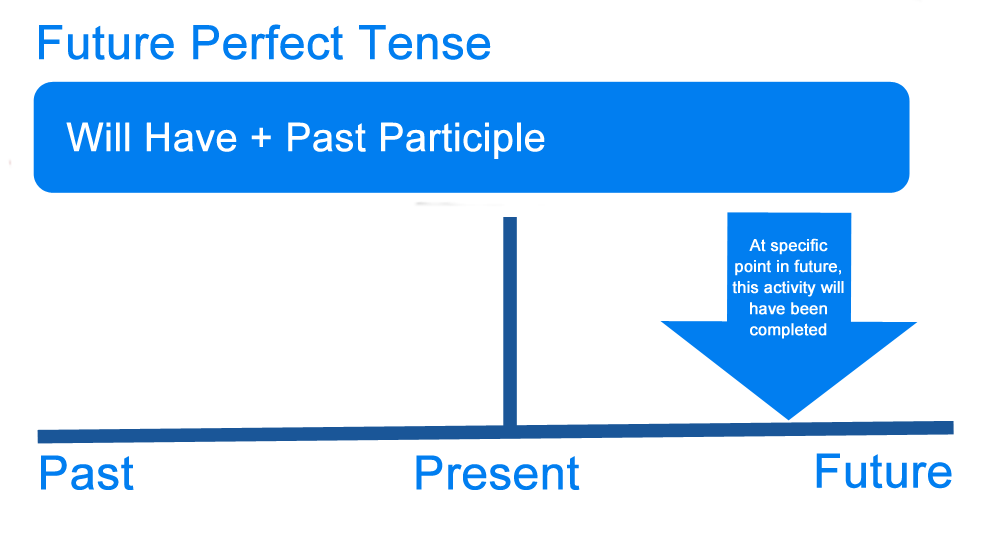Future tense definition: The future tense expresses actions that have not yet occurred or that will occur at a later time.
What is Future Tense in English?
What does future tense mean? The future tense of verbs expresses events or actions that have not yet happened and that will happen at some point in the future.
Future Tense Forms
There are four forms of the future tense. They include:
- simple future
- You will eat.
- future progressive
- You are eating.
- future perfect
- You will have eaten.
- future perfect progressive
- You will have been eating.
Four Types of Future Tense
What is a future tense verb? Here are the four future tenses in English. We have definitions and examples of each so you can learn past tense.
What is the Simple Future Tense?
What does simple future mean? The simple future tense expresses actions that will occur.

To form the simple future:
- Subject + will + base form of verb
Example:
- The investment of as much as $250 million will go to a hedge fund launched by Boston investment firm Quantopian. That fund provides money to do-it-yourself traders who come up with the best computerized investing methods, giving a share of any profits to the creators. –The Wall Street Journal
The simple future is used to express:
- promises, predictions
- It will rain tomorrow.
- habits, routine
- The alarm will sound when you open the door.
- The meeting starts at noon.
What is the Future Progressive?
What does future progressive mean? The future progressive expresses actions that will be ongoing (actions that the subject will be in progress doing) at some point in the future.

To form the future progressive:
- Subject + will be + present participle (and “-ing” to end of the verb)
Example:
- Meteorologists will be watching the sky, and they are urging the public to observe along with them. –The Boston Globe
The future progressive is used to express:
- future actions in progress
- They will be waiting for you.
- She will be retiring soon.
What is the Future Perfect Tense?
What does future perfect tense mean? The future perfect tense expresses actions that will be finished at some point in the future or those that will be finished before another future event.

To form the future perfect:
- Subject + will have + past participle of verb
The future perfect is used to express:
- actions that will be finished at some point
- By the time you arrive, we will have eaten dinner.
- actions that will be finished before another future event
- They will have lived in their new home for two years this fall.
What is the Future Perfect Progressive Tense?
What does future perfect progressive mean? The future perfect progressive tense expresses ongoing actions that will be completed at some specified time in the future.

To form the future perfect progressive:
- Subject + will have been + present participle (and “-ing” to end of the verb)
The future perfect progressive is used to express:
- ongoing actions that will be completed at specific future time
- In June, I will have been working as a professor for 15 years.
- You will have been driving for ten hours by the time we arrive.
Other English Tenses: Past and Present
 The above examples covered all of the various kinds of future tense verbs. English also has a present tense and a future tense.
The above examples covered all of the various kinds of future tense verbs. English also has a present tense and a future tense.
What is the Past Tense?
What does past tense mean? In general, the past tense expresses events that have occurred before now.
- The Smiths enjoyed dessert.
- We liked the movie.
What is the Present Tense?
What does present mean? In general, present tense expresses actions that are truths or facts.
- She makes cookies every weekend.
- Smoking is a terrible habit.
Summary: What is the Future Tense?
Define future tense: In grammar, the definition of future tense is a grammatical tense expressing an action that has not yet happened.
In summary, the future tense:
- is used to express actions that will occur
- has four forms including: simple, future perfect, future progressive, and future perfect progressive
Contents
